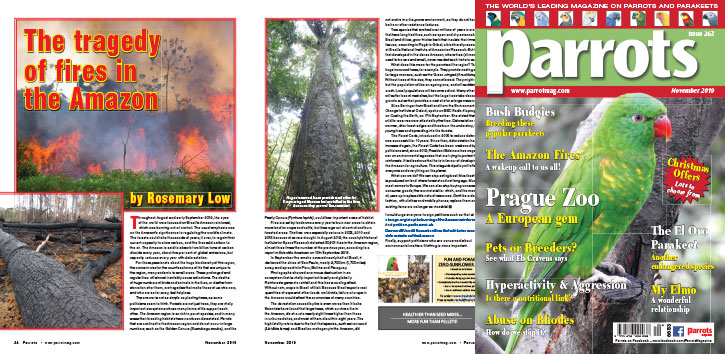
by Rosemary Low
Throughout August and early September 2019, the eyes of the world were focused on Brazil’s Amazon rainforest, which was burning out of control. The usual emphasis was on the Amazon’s significance to regulating the world’s climate. The forests could take thousands of years, if ever, to regain their current capacity to store carbon, and the fires add carbon to the air. The Amazon is said to absorb two billion tons of carbon dioxide every year, about five per cent of global emissions, but capacity reduces every year with deforestation.
For those passionate about the huge biodiversity of this region, the concern was for the countless forms of life that are unique to the region, many endemic to small areas. These prolonged and regular fires will almost inevitably cause extinctions. The deaths of huge numbers of birds and animals in the fires, or deaths from starvation after them, are tragedies that make those of us who care, and who are so far away, feel helpless.
The answer is not as simple as planting trees, as some politicians seem to think.
